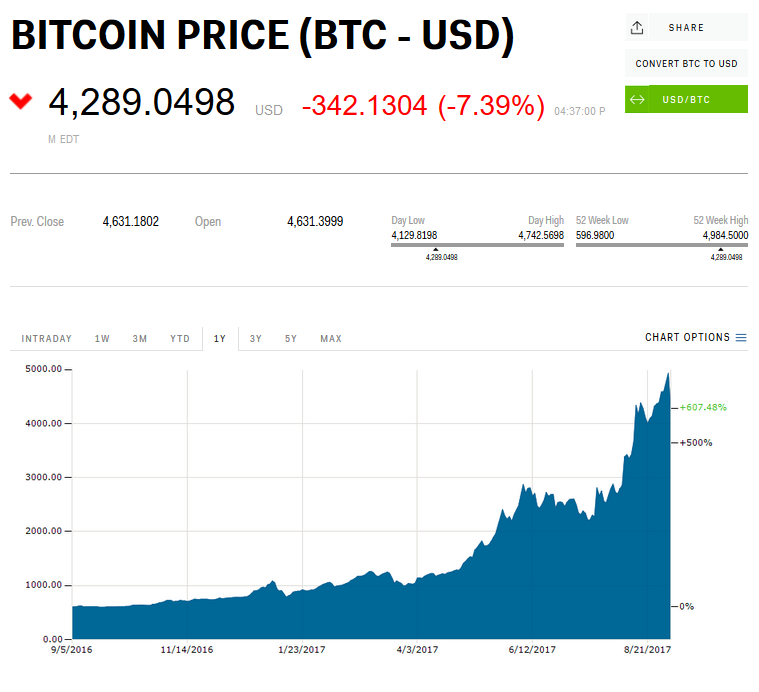NEW YORK – China has banned the hottest trend sweeping the cryptocurrency world and now the entire market for digital currencies is under pressure.
On Monday morning in Beijing, a slew of Chinese regulatory agencies released a joint statement in which they affirmed that initial coin offerings (ICOs), a cryptocurrency-based fundraising method, are illegal in the country.
The market for ICOs has grown exponentially this year with some firms using the fundraising method to raise millions of dollars in minutes without offering an actual product. As such, many Wall Streeters are calling the market a bubble.
To raise cash through an ICO, a company issues a new digital currency that can either be spent within its ecosystem, a bit like Disneyland dollars, or used to power part of the business.
Since the beginning of the year, $1.8 billion has been raised via ICOs, according to an email from financial technology analytics provider Autonomous NEXT.
Sebastian Quinn-Watson of Blockchain Global, a bitcoin exchange operator, told Business Insider in an email Monday morning that the news out of China is an "absolute win" for the cryptocurrency community because it will weed out illegitimate ICOs.
"The changes in regulation will take a lot of the bad actors out quickly," Quinn-Watson said. "Excellent result for every founder who has a good product, a sensible and well structure token sale process, and an international outlook."
Still, the 15 largest cryptocurrencies by market cap are all down more than 6% since Sunday, according to data from Coinmarketcap.com.
Litecoin, the fifth largest cryptocurrency, is down more than 15% at $64 per coin after surging above $80 on Friday. Likewise, bitcoin is lower by close to 7% at $4,340. Bitcoin surpassed the much-anticipated $5,000 benchmark for the first time on Saturday.
Ethereum is down nearly 16% at $288 per token. In total, the marketcap for cryptocurrencies has shed over $30 billion since Friday.
As reported by Business Insider's Oscar Williams-Grut, the wording of the statement by the People's Bank of China and the six other Chinese regulatory agencies also suggested that trading and usage of all cryptocurrencies, including bitcoin, could now be illegal in China.
The PBoC said that virtual currencies that are "not issued by the monetary authorities... do not have legal status equivalent to money, and can not and should not be circulated as a currency in the market use."

